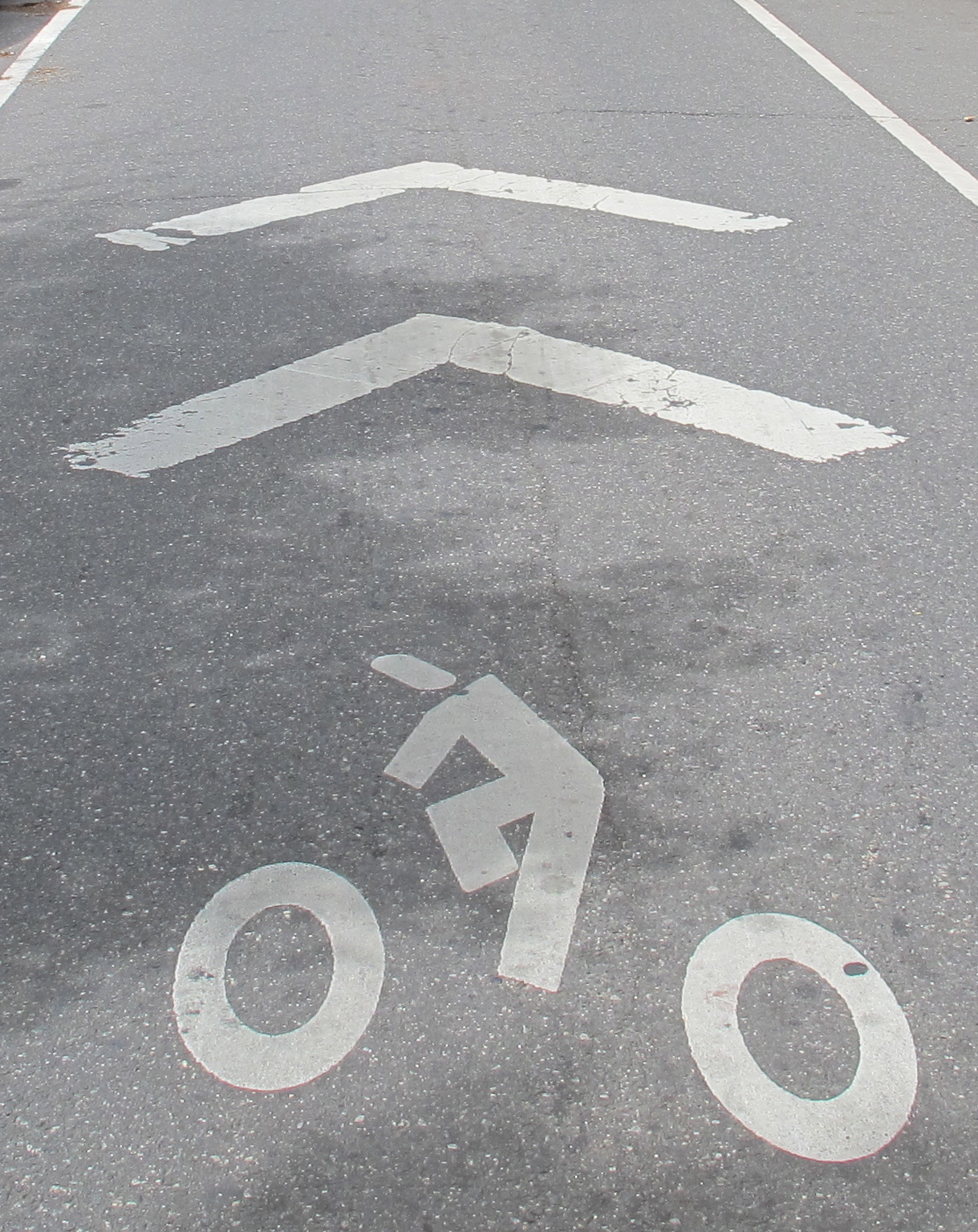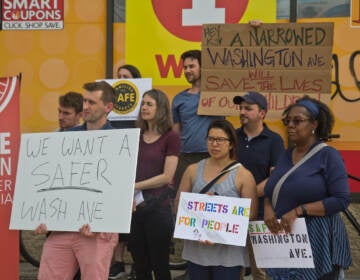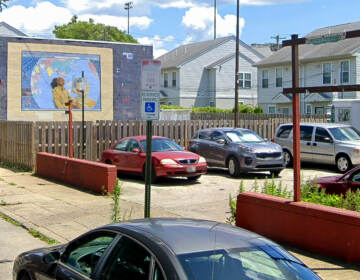Council considering bills to cut taxes on affordable housing, add short 15th Street bike lane

The final City Council session in May proved to be a quiet affair, with multiple presentations and photo ops dominating the proceedings.
Here are a few highlights from the otherwise quiescent gathering.
O’Neill and Clarke Worry About Property Taxes on Affordable Housing
Councilman Brian O’Neill introduced legislation, on behalf of Council President Darrell Clarke, to legislate how the city assesses property taxes on affordable housing.
In the early years of mass state-provided affordable housing, the public sector constructed and maintained most units and property taxes weren’t an issue. But in the late 20th century, federal policy leaned away from public housing and towards Low-Income Housing Tax Credits (LIHTC) and other incentives to encourage market actors to provide affordable housing. These projects are often orchestrated under a Limited Liability Company (LLC) ownership structure, so these properties are subject to property taxation.
After the city began overhauling its property tax assessments in 2013, and especially after the 2016 reassessment, the owners of some LIHTC buildings were faced with unexpectedly large tax bills. But council believes these hikes are out of keeping with state law about real estate taxes for affordable housing developments.
In an interview after Thursday’s Council session, Clarke stated that almost all of the LIHTC-funded developments in the city have seen large tax hikes and that many of them may close as a result. Clarke did not say if he means they would default on current tax credit deals or that the deals simply wouldn’t be renewed.
The legislation would require the OPA to consider the impact of rent restrictions and affordability requirements when considering the actual value of these properties. It also states that tax credits should not be considered real property or income attributable to real property.
The legislation would require that OPA consider the audits of these properties by the Pennsylvania Housing Finance Agency and take that data into consideration in its assessments. There isn’t a systemic way for OPA to verify whether a property has deed restrictions that limit rent or resale value, so the bill requires that properties that have such subsidies and restrictions be identified separately from normal properties.
Clarke says that the bill is meant to codify provisions that are already in state law, which should prevent OPA from assessing affordable housing as it would other properties.
“When they increased the assessments, they essentially did not comply with state law that says you must take into account rent restrictions,” says Clarke. “At the end of the day, they’ve increased assessments dramatically.”
Clarke says that O’Neill has a number of senior housing developments in his Northeast district that are suffering mightily under the increased burden.
Reached for comment, the administration said it looked forward to working with council on the issue.
Kenyatta Johnson introduces bike lane legislation
Councilman Kenyatta Johnson introduced legislation that would advance the long-burning plans to make 15th and 13th Streets neighborhood “bikeways.”
For years, the Bicycle Coalition of Greater Philadelphia, and the city’s Streets Department, has been working to enhance bicycle safety in South Philadelphia. The neighborhood’s streets are often too narrow for bike lanes, so the plan has been to paint green sharrows—those painted images of a cyclist in the middle of a street—down the middle of 13th and 15th streets between South Street and Oregon Avenue, without taking away parking. Signs will be placed in Broad Street directing bicyclists to those “bikeways,” and it is hoped that the presence of so many cyclists will push cars towards Broad Street.
Back in 2014, the Bicycle Coalition researched whether any American cities had installed bicycle infrastructure on streets like those of South Philly: 23’ wide and with parking on both sides. They found that no other city had attempted such a feat.
Johnson’s bill would give 15th Street, for a short southbound stretch from Carpenter Street to Washington Avenue, a five-foot wide bike lane. A parking lane and a partial travel lane would be removed to accommodate the two-way traffic in any case, but the bill ensures bikers get a safer ride too–for at least a block.
The block is being made two ways by the city and the bicycle coalition saw that as an opportunity to move to a full-on bike lane rather than a sharrow system.
“Given the current plans that the city is enacting we find a bike lane there is the best course of action and we support it 100 percent,” says Randy LoBasso, communications manager for the Bicycle Coalition. Asked if he thinks there will be pushback, LoBasso said there may well be. “But the safety of residents travelling the streets is more important than parking.”
City Council Pontificates on New Police HQ
This week the city announced that the police department would open new headquarters in the old Inquirer and Daily News built on North Broad Street. This $290 million project puts an end to the long, drawn-out battle over moving the police to the old Provident Mutual Life Insurance building at 46th and Market in West Philadelphia.
The city has already spent $50 million on the West Philly site, several council people felt compelled to weigh in on the change of plans.
Councilman Curtis Jones says that the officers deserve a world-class headquarters, but that the West Philly project needs to be finished.
“That place has been vacant for over a dozen years and we put a lot of work into it,” says Jones. “It’s not my district but it’s the gateway to my district. So let’s not forget what we need at 4601 Market. This is one of those middle neighborhoods we talk about and there is need for economic stimulus there.”
Councilman at-large Derek Green enthused about the new headquarters on North Broad Street and said it offered a perfect opportunity to diversify the building trades unions, which are mostly vast majority white and male. He noted that the Rebuild Initiative is already meant to begin the process and that the new headquarters offered the city another chance.
“I call the on the administration to use the example of Rebuild to create an opportunity for minority and women workers to be part of this $290 million project,” said Green.
For his part, Council President Clarke told reporters that in the weeks ahead he is planning a substantive discussion, in public, about the $50 million sunk into the West Philadelphia project. Clarke says he has a lot of questions about how we ended up here.
* This article has been updated to reflect that the parking lane on 15th would have been lost with or without the bike lane.
WHYY is your source for fact-based, in-depth journalism and information. As a nonprofit organization, we rely on financial support from readers like you. Please give today.







